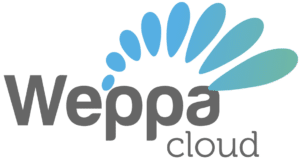Scammers love pitching small businesses on local directory listings. This is one of the easiest steps you’ll ever take for local SEO. Research shows consumers find a mix of reviews to be more trustworthy. Research shows that shoppers consider recency of reviews when trying to choose between 2 businesses.
Build Dashboards & Reports From Your Spreadsheet Data
At both the eligibility and ranking stages, Google calculates Ad Rank scores. When adding products and services, include the name, description, and price (if applicable). The full description will show up once a searcher clicks on the product. Also, Google may link to your products from your category section.
Create a Facebook Business page
Local citations are mentions of your business’s name, address, and phone number (NAP) online. In all, 7% of SEOs think these citations are the most important ranking factor. The easiest way to begin boosting your local rankings is to claim and optimize your Google Business Profile (GBP). Sitelinks are links to other pages (or sections of a page) that appear under some Google search results. Essentially, Google will begin showing results from other channels too, not just websites. So there could be a possibility that SEO Anomaly “improving SEO” in the future means creating relevant content on other channels too.
For example, if you search Google for the term “how to check website traffic”, the results show a list of tools and not a set of instructions as you would expect. Backlinks are one of Google’s most important ranking factors. Andrey Lipattsev, a search quality senior strategist at Google, confirmed this in 2016.
- The right keyword is relevant to the focus of your website, valuable to your target audience, and possible to rank for given your current domain authority.
- If you want to run an ad for your business on Google Maps, you need to claim your business through your Google Business Profile account and create a Google Ads account.
- Once you’re ready to go, it’s time to find some keywords to use!
- This opens up the Content Gap report, where you’ll see the common keyword rankings among these pages.
- But fishing with a net might catch dozens of fish with a single throw.
Domain authority is a metric that Google used to use a few years ago to rate the reputability of a website. Google stopped posting this number and it’s page-specific counterpart—page authority—a while back, but in one shape or another, it’s still clearly part of their algorithm. High volume keywords can undoubtedly be valuable for your SEO strategy, but your team should also take a look at lower volume — and even zero volume — keywords. Though these keywords garner a lower number of searches each month, the people placing these searches are often further down funnel and ready to complete a purchase.


